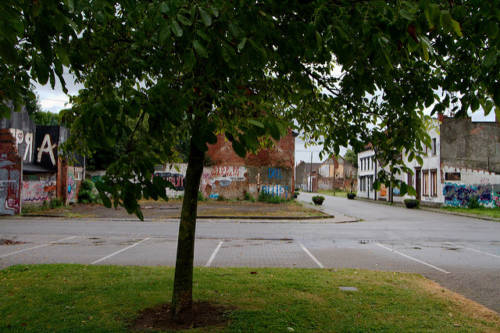In conversation with A Hill in the South Bronx, by Perla de Leon
Estoy buscando un árbol que me de sombra
Porque el que tengo me lo van a cortar
Coro de bomba
This building stands,
the last tree to be cut down
in a garden of brick and steel
made desert of rubble and dust.
It still shelters families
whose poverty
bites into them like the rats
that chew holes into their cereal boxes
and gnaw at their toes.
It spits out children to play
on mattresses evicted by flame and smoke,
then swallows them back in
after streetlights remind mothers
to call for their return.
It provides shade
for the mangy dogs who scavenge
through the leftovers of the leftovers
and then wait below the window
of the woman who leans out
and, like a merenguero playing guiro,
scrapes her plates clean,
letting each drop of food fall within reach.
Samuel Miranda is a poet, teacher, and visual artist. He is originally from the Bronx, but has made his home in Washington, D.C. He is the author of Departure, a chapbook published by Central Square Press. His poetry has been published in print and online journals and anthologies and has been translated into Spanish.




